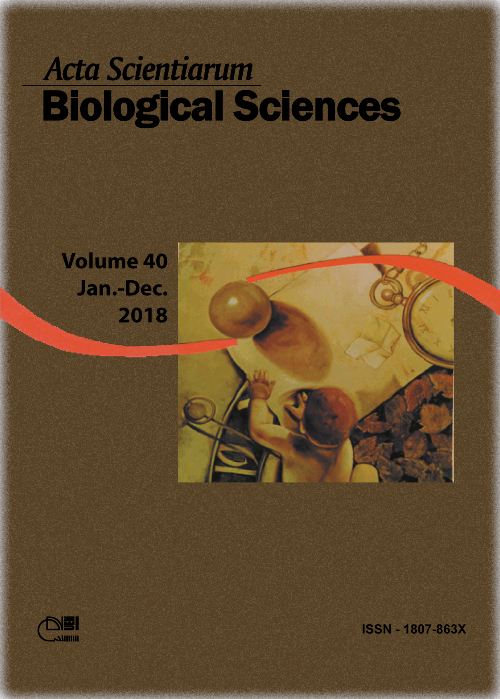<b>Determination of endogenous IAA and carbohydrates during the induction and development of protocorm-like bodies of <i>Cattleya tigrina</i> A. Richard
Resumo
Tissue culture techniques have been employed for orchid mass propagation by means of the morphogenetic route of protocorm like-bodies (PLBs). This study aimed to analyze and compare Indole-acetic acid (IAA) and sugar endogenous levels in protocorm-like bodies (PLBs) induction and development in Cattleya tigrina, in order to better understand this process and to optimize micropropagation procedure protocols. Leaves grown on MS (Murashige and Skoog) culture medium, suplemented with 9 μM TDZ for PLBs induction and development were collected after 0, 2, 7, 14, 30, 60 and 100 days of cultivation, for further analysis. Increase of IAA and reduction of sugar levels are strongly related to morphogenetic response, that is, PLBs formation over the preexisting ones and leaf primordia formation. Sucrose, fructose and glucose presence in this study is related to cell signaling. Thus, hormonal signals and carbohydrates alter metabolism, triggering PLBs initiation and development in C. tigrina.
Downloads
DECLARAÇÃO DE ORIGINALIDADE E DIREITOS AUTORAIS
Declaro que o presente artigo é original, não tendo sido submetido à publicação em qualquer outro periódico nacional ou internacional, quer seja em parte ou em sua totalidade.
Os direitos autorais pertencem exclusivamente aos autores. Os direitos de licenciamento utilizados pelo periódico é a licença Creative Commons Attribution 4.0 (CC BY 4.0): são permitidos o compartilhamento (cópia e distribuição do material em qualqer meio ou formato) e adaptação (remix, transformação e criação de material a partir do conteúdo assim licenciado para quaisquer fins, inclusive comerciais.
Recomenda-se a leitura desse link para maiores informações sobre o tema: fornecimento de créditos e referências de forma correta, entre outros detalhes cruciais para uso adequado do material licenciado.













1.png)




3.png)













